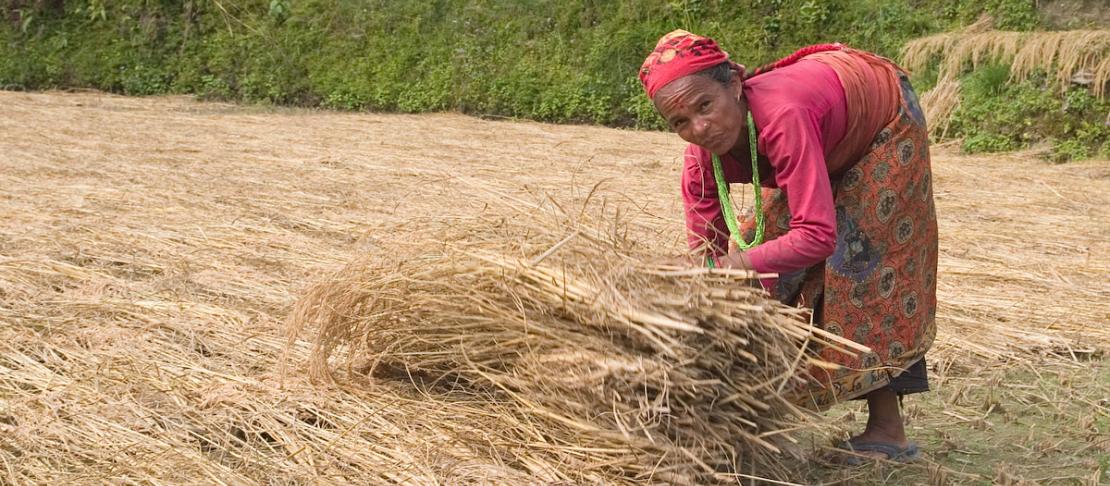Getting more out of local knowledge

A series of public events put farmers at the heart of climate change discussions in Nepal.
The International Water Management Institute (IWMI) is inviting farmers from some of Nepal’s most at-risk communities to add their voices to a series of public debates that could help shape the development of national policies on climate change adaptation.
The events include discussions on local and national radio, public film screenings, and workshops with farmers, scientists and policymakers. They will take place this November and December, with support from the CGIAR Research Programs on Climate Change, Agriculture and Food Security (CCAFS) and Water, Land and Ecosystems (WLE).
According to the IWMI report, Climate change impacts and adaptation in Nepal, the country is highly vulnerable to climate change. Over 70% of the population is directly dependent on agriculture, and unpredictable monsoon rains along with increases in floods, droughts and other natural disasters are already affecting food production.
In the period 2008-2009, for example, a severe drought devastated wheat and barley yields, while floods from the following monsoon also destroyed crops. The report predicts that these extreme weather conditions will become more frequent due to climate change and smallholder farmers will have to bear the brunt.
This is an excerpt from the original blog, Getting more out of local knowledge, published first on The International Water Management Institute (IWMI) website.
